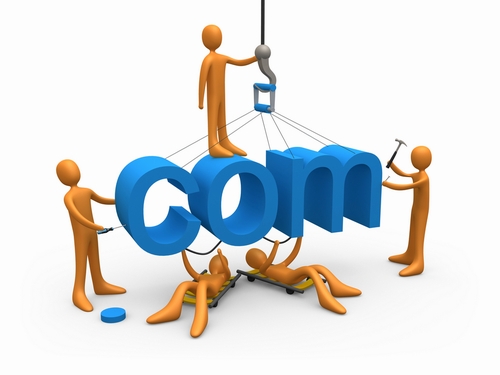7 Widespread Admin Errors in CMS
CMS (Short for Content Management System) is often a extremely common piece of software for running blogs, personal sites, corporate internet sites and any other kinds of internet sites you’ll be able to believe of. CMS are reasonably straightforward to use and this can be a single crucial explanation why they became so well-known.
Nevertheless, simple to make use of and secure are definitely not synonyms when CMS are concerned. Although most in the leading CMS will not demand considerably effort to make them quite safe, it can be not uncommon to see CMS with out the proper protection. Such CMS are easy targets for hackers.
When a CMS gets hacked, generally the cause for this just isn’t that the CMS itself is insecure but that hackers took advantage of some common admin mistakes. The list of admin blunders is pretty long but not surprisingly, the number of probably the most prevalent ones is usually a single digit. Here are some of these errors you will need to know and never do inside the CMS you administer:
1. Default passwords

A single in the 1st things hackers examine when they plan to attack is for “easy passwords”. Default passwords (i.e. the passwords that come together with the set up) are straightforward to locate. It truly is true that numerous CMS never come having a default password or even if they do, the set up procedure will make you change your password before it is possible to use the application but in case your CMS comes with a default password, make sure that you alter it. Also, make sure that you just modify the password for the database too since the database is also a target for hackers.
2. Blank passwords
In addition to default passwords, clean passwords are another common mistake admins make (if the CMS enables them since fortunately a lot of CMS don’t make it possible for clean passwords). It’s not needed to state how risky clean passwords are – they call for no guessing at all and hacking a CMS having a blank password is simply a piece of cake for a beginner. All it takes is to guess the username – if the username is “admin”, “administrator” or some thing comparable, then breaking into your CMS is a matter of seconds.
As with default passwords, the risk is higher when the admin account is affected but there is no cause to let non-admin customers, who have access to the database to have empty passwords. This really is why it makes sense to force strict rules for passwords for everybody.
3. No patches put in
It truly is correct that installing tens of patches a day is boring but when you do not watch out for (at least) the critical updates and do not set up them in a timely manner, that is an invitation to hackers. Hackers monitor reports for new vulnerabilities and depend on the truth that the administrator won’t install the patches quickly.
In fact, several hacks occur just within the time period between a vulnerability is reported as well as the admin installs the patch. This really is why it can be critical to set up patches fast and manually. Automatic set up is simpler but as strange as it may sound, it could make issues worse – i.e. break your CMS. You do will need to set up patches manually, so that you know exactly what has been installed.
4. PHP register_globals on

If your CMS is written in PHP and also you are using PHP 5 or earlier, one far more thing you need to check right away is if register_globals is on. If register_globals is on, you will need to turn it off instantly due to the fact when it really is on, you’ll find millions of methods in which this might be misused to hack your web site. For quite a few CMS this variable is by default off but you can’t rely on that – you’ll want to verify it manually.
From the rare case when you have plugins or other functionality that can’t work when register_globals is off, it truly is a no brainer what to complete – just get rid of these plugins/functionality since this is less of a sacrifice than having register_globals on.
5. Insecure internet hosting

Insecure web hosting is a single with the greatest danger for the security of your CMS. Vulnerabilities within the operating system and also the other software which is installed on your word wide web host are also among the favorite targets of hackers plus the worst is that if your word wide web host is insecure, there isn’t much you as an admin of one’s CMS can do to counteract it. You cannot fix the holes in the security of one’s net hosting provider as well as the only issue you may do is escape to a far better net host.
6. Generous person privileges

You’ll find hardly any admins (in their correct mind), who will give admin privileges to ordinary users but there aren’t that few admins, who are really generous when user privileges are concerned. One particular of probably the most critical security guidelines could be the least privilege rule – i.e. give customers access only to those parts of your internet site they truly need to have to have in order to complete their jobs. A single of the risks of generous person privileges is that the credentials might be utilized for internal hacking, which will not be a smaller issue than external hack attacks.
7. Insecure plugins

Hackers may well not enter via the front door within your CMS but when the other doors are open, they do not need to have backdoors (i.e. malware) to gain entry to your web page. Practically any CMS relies on plugins to offer additional features and this can be the charm of CMS due to the fact you get a base set up and also you have the freedom to add only the features you will need but this freedom is also a security risk.
As a rule, plugins are developed by third-parties and it is not quite clear if they’re rigorously tested. Incredibly typically plugins have safety holes in them and hackers are happy to take benefit of any such security holes. The wisest it is possible to do is remove any plugins with known protection issues. It really is considerably greater not to possess a specific features than to put the safety of one’s whole website at danger.





